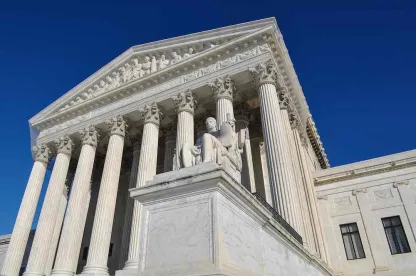What does the musical Fiddler on the Roof have to teach us about prosecuting theories of mail and wire fraud? You have to ground everything in Tradition! Tradition! Tradition!
This week, the U.S. Supreme Court (“SCOTUS”) and the First Circuit released opinions that further rein in prosecutions for mail and wire fraud. The SCOTUS case, Ciminelli v. U.S., arose out of a federal crackdown on corruption at the highest levels of New York state government involving development projects in Buffalo, New York, and the First Circuit case, U.S. v. Abdelaziz, arose out of the “Varsity Blues” college admissions scandal. In both cases, the courts overturned the convictions of defendants who were convicted of mail and/or wire fraud based in part on theories that certain intangible interests could be property constituting the object of the fraud.
Ciminelli v. U.S.
In Ciminelli, in a 9-0 decision, the justices rejected the Second Circuit’s “right-to-control” theory of wire fraud by which the defendants were convicted based on allegations that they schemed to deprive someone of “valuable economic information” that was necessary to make discretionary economic decisions. Although the theory had existed since the early 1990s, the Second Circuit had never grounded the right-to-control theory in traditional property concepts, which would ultimately lead to its downfall.
In the opinion written by Justice Clarence Thomas, the court held that “the wire fraud statute reaches only traditional property interests. The right to valuable economic information needed to make discretionary economic decisions is not a traditional property interest. Accordingly, the right-to-control theory cannot form the basis for a conviction under the federal fraud statutes.”
U.S. v. Abdelaziz
In Abdelaziz, a three-judge panel rejected the government’s categorical assertion that “admission slots always qualify as property for purposes of the mail and wire fraud statutes merely because they may bear some hallmarks of traditionally recognized forms of property.” The government’s descriptions of the admissions slots were too general and too abstract for the court to determine whether the slots reflected traditional concepts of property.
To determine whether something falls within traditional concepts of property the panel offered three guideposts distilled from Supreme Court precedent:
-
Whether the purported property at issue falls within a dictionary definition of that term;
-
Whether it has been recognized as property in case law or other legal sources; and
-
Whether it exhibits traditional attributes of property.
Although the government did not make any argument based on the dictionary definitions, the panel helpfully pointed out that the Supreme Court relied on Black’s Law Dictionary for guidance on the ordinary meaning of property.
The government did, however, offer two cases that recognized two interests as property that were purportedly analogous to admissions slots. The government first relied on the Supreme Court case, Bridge v. Phoenix Bond & Indemnity Co., to analogize admissions slots with bids on tax liens. However, the panel pointed out that the property at issue in the case was not the bids, but the underlying liens. The government also relied on a Sixth Circuit case, U.S. v. Frost, to analogize admissions slots with unissued degrees. This analogy was also unpersuasive. For the panel, a degree represented the culmination of the transaction between the university and the student, and the admission slot was merely an offer to participate in such a transaction. Thus, neither case established that admission slots were historically recognized forms of property.
Finally, the government argued that admissions slots bear the hallmarks of traditional forms of property because they are “both exclusive and economically valuable,” but the panel found that the government’s “proposed test sweeps too broadly.” Under such a test, intangible interests that had already been rejected by other courts, including ones rejected by the highest court, would qualify as property interests.
Although the court was ultimately unwilling to hold that admissions slots could never be property (since the slots bore some of the applicable traditional characteristics), the court determined that the government’s description of admissions slots as property could not sustain a conviction under federal mail and wire fraud statutes.
Key Takeaways
-
Any prosecution theory for mail and wire fraud involving an intangible interest must be grounded in traditional concepts of property.
-
The farther away the intangible interest at issue is from traditional concepts of property, the more challenging it will be to analogize the interest to prior case law.
-
Any test to show that an intangible interest bears the hallmarks of traditional forms of property must be able to reconcile all pre-existing case law.



 />i
/>i
